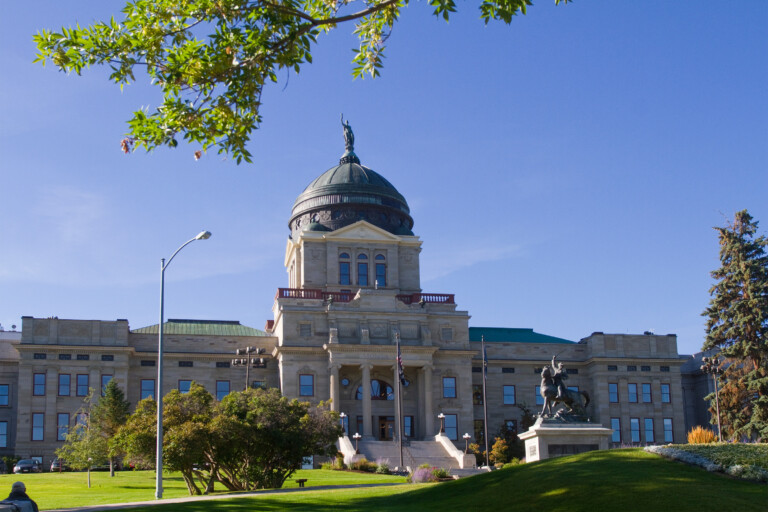Obamacare Sign-Ups Lag After Trump Election, Legal Challenges – KFF Health News
(DigitalVision/Getty Images) New enrollments under the Affordable Care Act are on pace to trail last year’s record numbers by as many as a million as the outgoing Biden administration confronts upheavals in the program.
Donald Trump’s election to a second term has cast uncertainty around the future of the health law. In addition, the Biden administration implemented cumbersome policies to reduce fraudulent enrollment and is combating a lawsuit that aims to block immigrants who lack legal residency from buying insurance under the program.
So far, the number of new and returning enrollees using healthcare.gov — the federal marketplace that serves 31 states — is below last year’s. New enrollments were just over 730,000 in early December, compared with 1.5 million at the same time last year.
To give consumers in federal marketplace states more time to enroll, the Centers for Medicare & Medicaid Services extended to Dec. 18 the deadline to sign up for coverage that starts Jan. 1. (The Jan. 15 deadline is for coverage that would begin Feb. 1.)
Also in flux is a rule issued by the Biden administration allowing — for the first time — enrollment in ACA coverage by people brought to the U.S. as children without immigration paperwork, known as “Dreamers.”
Email Sign-Up Subscribe to KFF Health News’ free Morning Briefing.
The Biden team was granted a temporary stay on Dec. 16 by the U.S. Court of Appeals for the 8th Circuit regarding a Dec. 9 order by a federal judge in North Dakota. That district court judge had ruled in favor of 19 states that sought to block the Biden administration’s Dreamers directive. Without a stay, the decision in that case, Kansas v. the United States, effectively bars those who have qualified for the Deferred Action for Childhood Arrivals program in the 19 states from enrolling in or getting subsidies for ACA plans. It does not appear to affect enrollment or coverage in other states, lawyers following the case have said.
A final decision on the temporary stay was expected any day now. If granted, it could allow Dreamers to continue enrolling while the government’s appeal of the district court ruling is heard, which is unlikely to occur before Trump takes office.
In its court filings, the Biden administration argues that not granting a stay would be very disruptive in the middle of open enrollment, causing the federal government to incur costs in retooling its marketplace to reflect the change, and notifying those who have already enrolled that their plans are canceled.
The original case was filed in August in the U.S. District Court for the District of North Dakota and is being heard by District Judge Daniel Traynor, who was nominated in 2019 by then-President Trump.
Previously, the federal government estimated that about 100,000 uninsured people out of a half-million DACA recipients might sign up for 2025 coverage. In its new filing, the government says 2,700 have enrolled in those states that brought the suit and use the federal marketplace.
The Biden administration rule, finalized in May, clarified that those who qualify for DACA would be considered “lawfully present” for the purposes of enrolling in plans under the ACA, which are open to citizens and those who are called “lawfully present” immigrants.
The federal lawyers argue that North Dakota has not proved it would be harmed by the rule, so it has no standing to bring the case. North Dakota argued that it incurs costs for approximately 130 DACA recipients who live in its state, and that it would not have those expenses if they were barred from enrolling in the ACA and thus decided to leave the country. An exodus is unlikely, the federal government argued. The legal brief also questioned North Dakota’s calculation that it incurs costs of $585 to issue driver’s licenses to the DACA recipients and about $14,000 annually to educate at least one DACA member or dependent.
All the states challenging the ACA rule say it will cause administrative and resource burdens as more people enroll, and that it will encourage additional people to remain in the U.S. when they don’t have permanent legal authorization. The plaintiff states are Alabama, Arkansas, Florida, Idaho, Indiana, Iowa, Kansas, Kentucky, Missouri, Montana, Nebraska, New Hampshire, North Dakota, Ohio, South Carolina, South Dakota, Tennessee, Texas, and Virginia.
Article Source
Information contained on this page is provided by an independent third-party content provider. This website make no warranties or representations in connection therewith. If you are affiliated with this page and would like it removed please contact editor @producerpress.com



